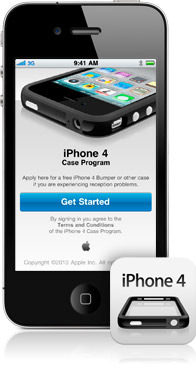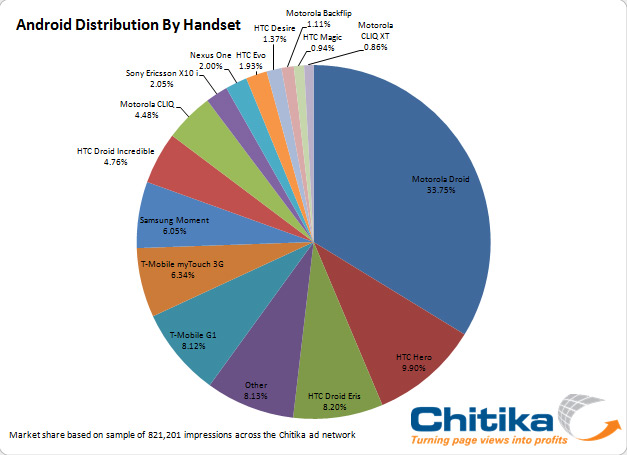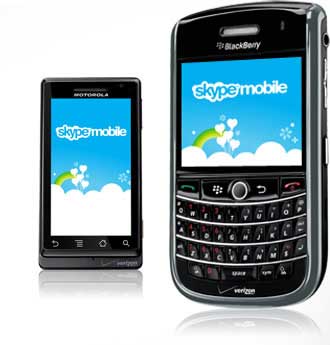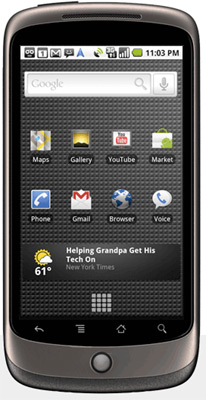Update: Eric Schmidt and Ivan Seidenberg added some commentary in a Washington Post article today.
Original Article: Today Google and Verizon held a joint press conference, and issued a joint policy proposal for an Open Internet, as they say. The companies appear to be promoting an Open Internet indeed, but there remains a great deal of skepticism about the policy proposal. Really, could it have gone any other way?
Not that there’s anything wrong with that. This is the kind of thing you don’t want to just sit back and not question. You can expect a great deal of commentary about this to emerge (there is already quite a bit) as analysts have more time to look at the proposal and its implications, and let the information sink in, while playing out possible scenarios.
Google and Verizon have explained the proposal here, outlining seven principles that it embodies (Verizon has posted it as well). The proposal, intended for consideration by policymakers and the public is embedded below.
| Verizon-Google Legislative Framework Proposal |
Danny Sullivan has a liveblogged account of the actual press conference here.
While the proposal focuses heavily on giving the FCC the power to regulate the broadband industry, one of the biggest criticisms it has drawn so far is the separate treatment of wireless broadband.
The companies say, "We both recognize that wireless broadband is different from the traditional wireline world, in part because the mobile marketplace is more competitive and changing rapidly. In recognition of the still-nascent nature of the wireless broadband marketplace, under this proposal we would not now apply most of the wireline principles to wireless, except for the transparency requirement. In addition, the Government Accountability Office would be required to report to Congress annually on developments in the wireless broadband marketplace, and whether or not current policies are working to protect consumers."
An example of the criticism this has invoked, comes right in the comments on Google’s blog post itself, "How exactly is wireless access different just because it is more competitive? Isn’t this a tad hypocritical? Everything is net-neutral except our oh-so-precious Android/Verizon traffic. Geez!" writes commenter Vishnu Gopal.
Jan-David Jansen says (also in the comments), "Way to find a loophole in Net Neutrality via wireless, Google. ‘We will NOT prioritize our content (unless it’s on wireless which is the future of networking…).’"
Some have also taken issue with the companies’ description of "Differentiated online services". This refers to the part in which the companies say, "We want the broadband infrastructure to be a platform for innovation. Therefore, our proposal would allow broadband providers to offer additional, differentiated online services, in addition to the Internet access and video services (such as Verizon’s FIOS TV) offered today."
You can count on the fact that the companies will get plenty of "public comment" on their ideas, though it will not all be harsh criticism. Along with the skepticism, there is already a lot of praise for the proposal as well.
Either way, this is simply a proposal for policymakers to look at, and in now way indicates that all of the principles outlined will become law. There’s no telling what the actual legislators will come up with.

 Even if the mobile carriers are successful in their venture, it will be a long time before the credit card is truly replaced. Smartphone usage is growing, but these devices are a long way off from being in everybody’s hands.
Even if the mobile carriers are successful in their venture, it will be a long time before the credit card is truly replaced. Smartphone usage is growing, but these devices are a long way off from being in everybody’s hands. 


 A
A  AT&T says the transaction enhances its wireless network coverage in primarily rural areas in 79 service areas across 18 states, including: Alabama, Arizona, California, Colorado, Iowa, Kansas, Michigan, Minnesota, Montana, Nebraska, Nevada, New Mexico, North Dakota, South Dakota, Tennessee, Utah, Virginia and Wyoming.
AT&T says the transaction enhances its wireless network coverage in primarily rural areas in 79 service areas across 18 states, including: Alabama, Arizona, California, Colorado, Iowa, Kansas, Michigan, Minnesota, Montana, Nebraska, Nevada, New Mexico, North Dakota, South Dakota, Tennessee, Utah, Virginia and Wyoming. Top-rated sellers will be allowed to list up to 8 items per week. Sellers with a history of selling in the Cell Phones & PDAs category will be allowed to list up to 8 items per week. Everyone else will be allowed to list up to 4 items per week. All sellers are required to accept PayPal as their only method of payment.
Top-rated sellers will be allowed to list up to 8 items per week. Sellers with a history of selling in the Cell Phones & PDAs category will be allowed to list up to 8 items per week. Everyone else will be allowed to list up to 4 items per week. All sellers are required to accept PayPal as their only method of payment. 


 Matthew Miller at ZDNet
Matthew Miller at ZDNet 


 From the event, Google discussed and demonstrated the following features of the Nexus One:
From the event, Google discussed and demonstrated the following features of the Nexus One: